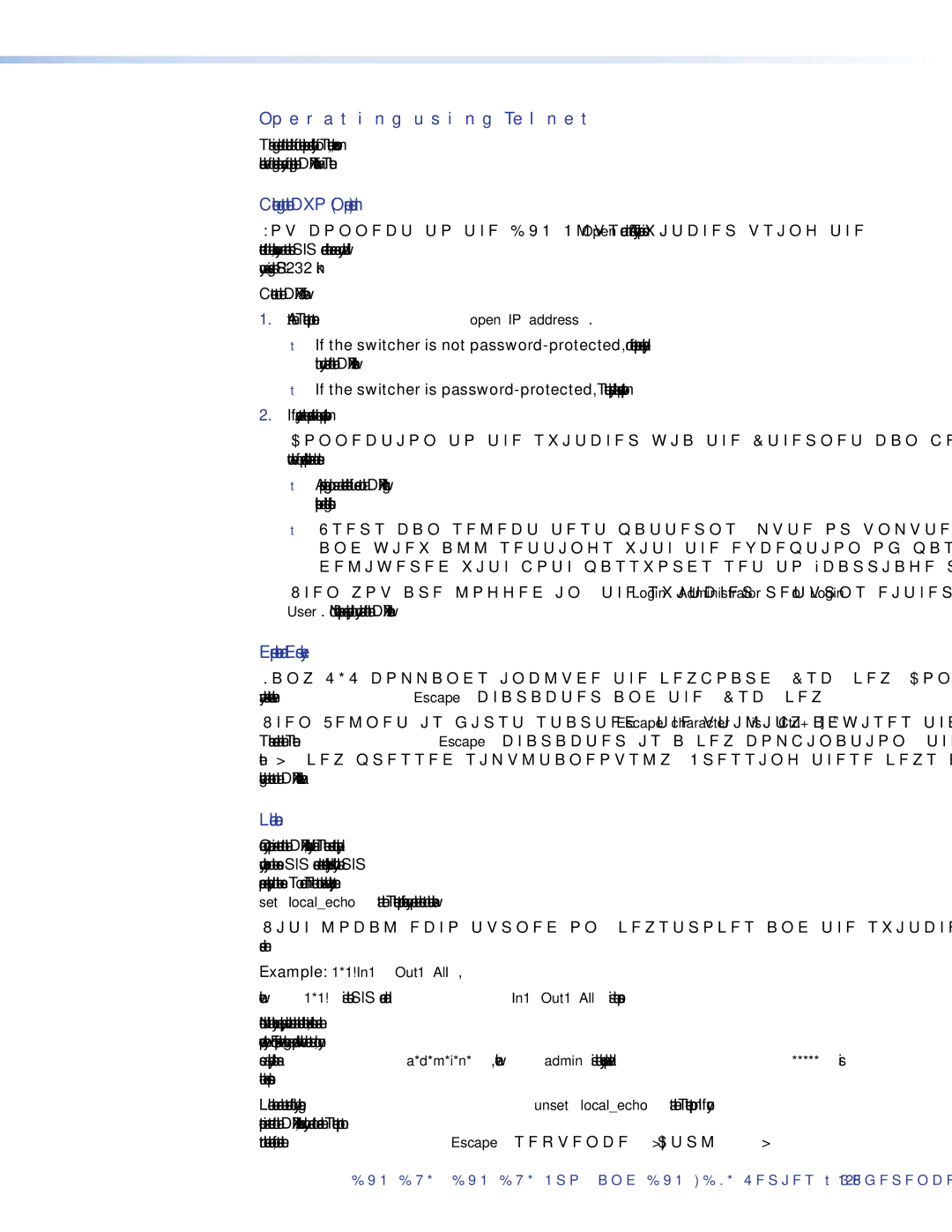Operating using Telnet
This guide does not detail all of the operations and functionality of Telnet; however, some basic level of understanding is necessary for operating the DXP switcher via Telnet.
Connecting to the DXP (Open command)
You connect to the DXP Plus switcher using the Open command. After your computer is connected to the switcher, you can enter the SIS commands the same as you would if you were using the
Connect to the DXP as follows:
1.At the Telnet prompt, enter open IP address.
•If the switcher is not
•If the switcher is
2.If necessary, enter the password at the password prompt.
Connection to the switcher via the Ethernet can be password protected. There are two levels of password protection: administrator and user.
•A person logged on as an administrator has full access to all DXP switching capabilities and editing functions.
•Users can select test patterns, mute or unmute the output, select a blue screen, and view all settings with the exception of passwords. By default, the switcher is delivered with both passwords set to “carriage return.”
When you are logged in, the switcher returns either Login Administrator or Login User. No further prompts are displayed until you disconnect from the DXP switcher.
Escape character and Esc key
Many SIS commands include the keyboard <Esc> key. Consequently, some confusion may exist between the Escape character and the <Esc> key.
When Telnet is first started, the utility advises that the Escape character is “Ctrl+].” This means that the Telnet Escape character is a key combination: the <Ctrl> key and the <]> key pressed simultaneously. Pressing these keys displays the Telnet prompt while leaving the connection to the DXP switcher intact.
Local echo
Once your computer is connected to the DXP switcher, by default Telnet does not display your keystrokes on the screen. SIS commands are entered blindly, and only the SIS responses are displayed on the screen. To command Telnet to show all keystrokes, enter set local_echo at the Telnet prompt before you open the connection to the switcher.
With local echo turned on, keystrokes and the switcher responses are displayed on the same line.
Example: 1*1!In1 Out1 All,
where 1*1! is the SIS command and In1 Out1 All is the response.
Note that all keystrokes are displayed, even those that should be masked, such as the password entry. For example, when entering a password with local echo turned on, you see a display such as a*d*m*i*n*, where admin is the
Local echo can be turned off by entering unset local_echo at the Telnet prompt. If your computer is connected to the DXP switcher, and you need to access the Telnet prompt to turn local echo off, enter the Escape sequence (<Ctrl> + <]>).
DXP DVI, DXP DVI Pro, and DXP HDMI Series • Reference Information 128
